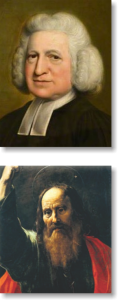
Our Christmas tree this year…
Often when I write a poem, I start with a metaphor; I sniff poetic possibilities in the wind and I follow these and see where they lead. I had been teaching in Mostar Bible Institute, in Bosnia-Herzegovina, in the fall of 2011. While I was in flight on the way home, this image of Jesus walking on the water came to me as a kind of parable of his Incarnation. So I followed the metaphor, saw where it led, and came up with the poem.
As in the old German carol, Lo, How a Rose E’re Blooming, my poem arrived at the same place the carol does: “She bore to men a Savior, when half-spent was the night.” F. Scott Fitzgerald, the great novelist who struggled with malaise, observed, “In a real dark night of the soul, it is always three o’clock in the morning.” Job, in the middle of his trial, his dark night, described it like this:
“Like a slave longing for the evening shadows,
or a hired man waiting eagerly for his wages,
so I have been allotted months of futility,
and nights of misery have been assigned to me.
When I lie down, I think, ‘How long before I get up?’
The night drags on, and I toss till dawn” (Job 7:2-4).
This is what I love about our Lord Jesus: He comes to us in the middle of the night, during the fourth watch—at three o’clock in the morning. He chose to arrive at the time when we needed him the most. In the middle of the night, when all the negative alternatives seemed so plausible—then he came with new life, new hope, a new future for us all.
Like walking on the water He came to us,
Born to Mary and Joseph long ago
Born our Savior, Christ the Lord,
Coming to us in the fourth watch of the night
And saying, “Take heart! It is I! Do not be afraid!”





Recent Comments